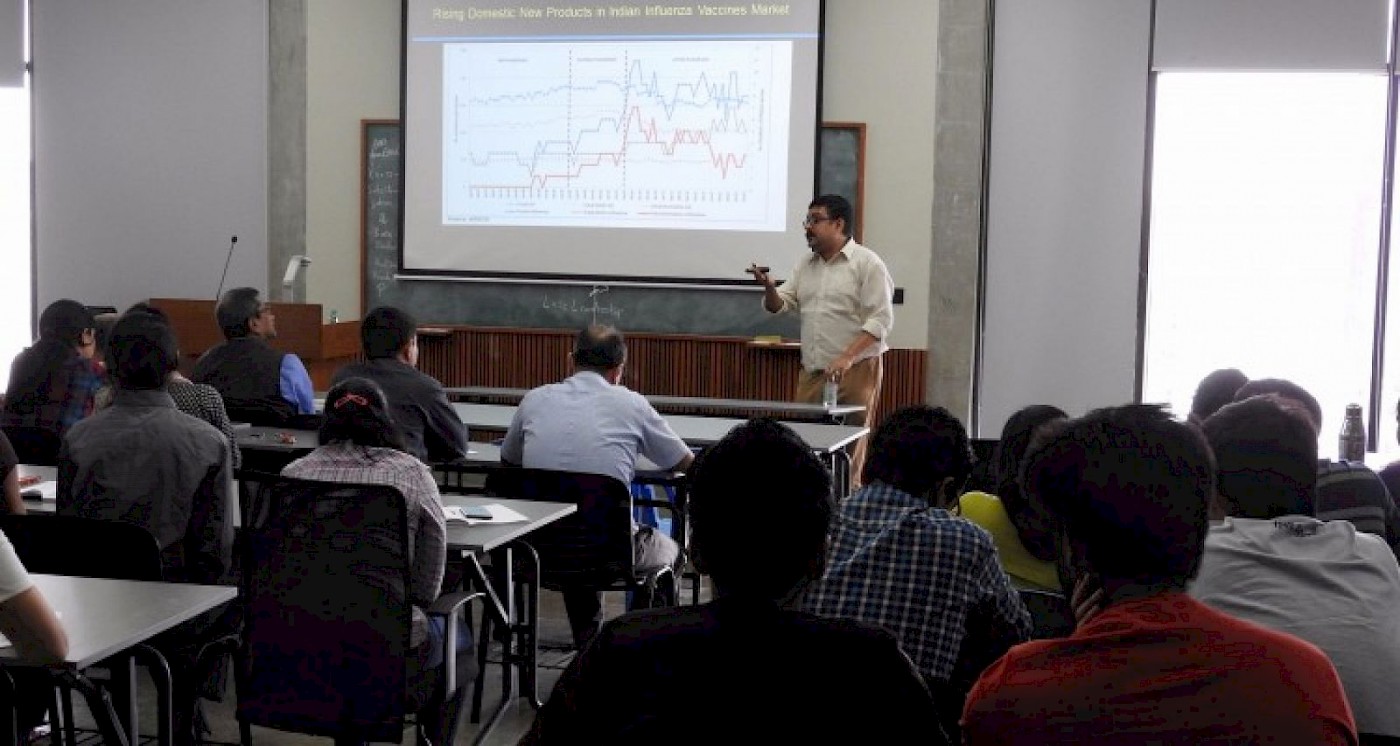Exogenous Demand Shocks and New Product Introductions

Dr Chirantan Chatterjeem, Assistant Professor in the Corporate Strategy and Policy Area at IIM Bangalore delivered a lecture in the Research Seminar series on 24th August 2016, Wednesday from 2:15 pm to 3:45 pm. The venue was Amrut Mody School of Management, Room 208, GICT Building, Central Campus.
Dr Charterjee talked about his research on the causal relationship between exogenous demand shocks and new product introductions in India’s vaccine markets. Using a novel dataset of detailed purchasing information for vaccines in the country and exploiting the occurrence of the 2009-10 global H1N1 pandemic as their causal demand shock, his team provides evidence of heterogeneous responses to the shock by domestic and multinational vaccine manufacturers in influenza vaccines. Specifically, they find that such a shock results in reversal of market structure for influenza vaccines in India with a decline in sales of multinational vaccine manufacturers and significant gains in market share gains by domestic vaccine manufacturers. They further provide evidence that such a reversal of the market structure is driven by new product introductions by domestic vaccine manufacturers and their distinctive R&D strategies, whose effects persist even after the shock is over. Finally, they examine the efficacy of targeted policy instruments aimed at stimulating innovation in domestic manufacturers. Taken together, their results provide new evidence on how demand shocks create differential incentives for domestic and multinational manufacturers to innovate and contribute to the ongoing debate on the relationship between market size and innovation. In addition, their results offer useful insights into the role of policy on innovation and competition in the context of an emerging economy facing adverse welfare effects from pandemics.
Chirantan Chatterjee is Assistant Professor in the Corporate Strategy & Policy Area at IIM Bangalore. He did his doctoral studies in Public Policy and Management from Heinz College, Carnegie Mellon University, where his dissertation was supported by the National Science Foundation. Earlier, he worked as Research Assistant in the Private and Financial Sector Development Unit at the World Bank and as a business journalist with The Economic Times, Times of India Group. He has been a full-time Teaching Fellow in Economic Principles of Policy Analysis at Heinz College. Professor Chatterjee’s key research areas are around the economics of global healthcare markets, incentives for innovation and the role of patents. In addition, he is interested in technology strategy and emerging economy multinational firms. He takes a keen interest in teaching issues around the business of science; in the life-science and healthcare sector. His research employs insights from the empirical industrial organization, applied microeconomics and strategic foundations of industries, to examine the trade-offs between access, innovation and welfare in global pharmaceutical & healthcare markets. Chatterjee has published in global peer-reviewed outlets like the RAND Journal of Economics, Journal of Health Economics, Journal of Antitrust Enforcement, Economic & Political Weekly, Brookings Press and NBER. At IIMB, Dr Chatterjee has engaged in extensive teaching, creating and delivering courses at various levels – PhD, MBA, and Executive programs.



